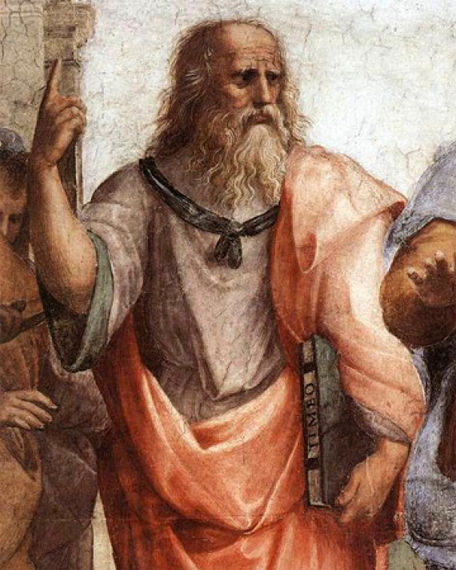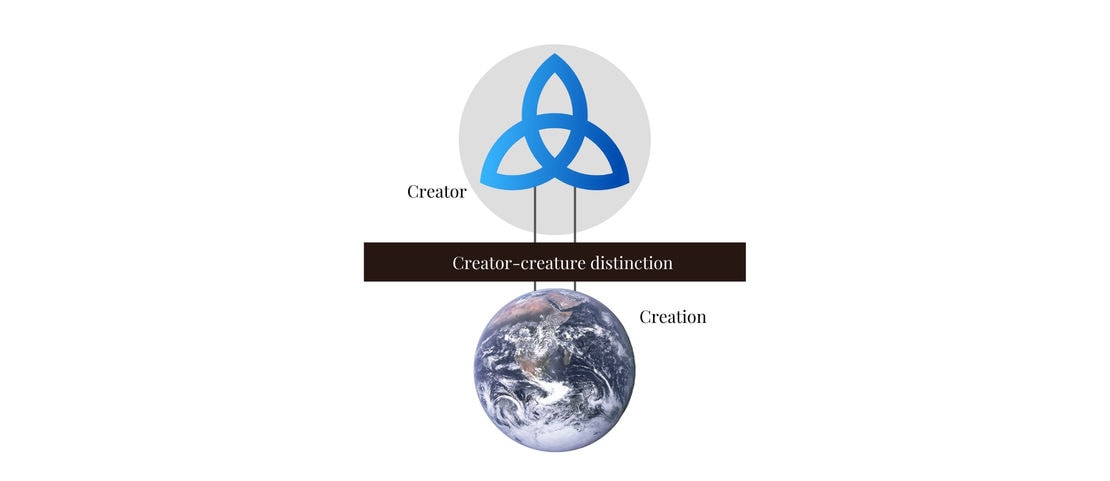In this article, we will attempt to distinguish between the Cognitio Dei Insita (innate knowledge of God), and the Cognitio Dei Acquisita (acquired knowledge of God). Significant for us to note in this regard, is that Van Til writes his chapter on the Innate and Acquired Knowledge of God in his Introduction to Systematic Theology after the chapter on the Incomprehensibility of God. This article will draw heavily on this work in an attempt to throw much-needed light on the subject.

This subject is important because it touches on the idea of natural theology. We first note that Christians reject the rationalist notion that man has innate ideas; he also rejects the notion that man is, at the outset of his experience, a tabula rasa [the idea that our minds begin as blank slates]. Nor is it possible for a Christian to accept some kind of cross between rationalism and empiricism.
This might seem counter-intuitive. What other position is there for Christians to take?
In essence, because God is the absolute incomprehensible God of the Bible, this has certain implications for us as His creatures.
What is innate knowledge?
* In this section, we are mainly concerned with the contemporary definition of innate knowledge, and not with a specific Christian view of innate knowledge.
The innate knowledge thesis asserts the existence of knowledge whose source is our own nature: we are born with this knowledge; it doesn't depend, for its justification, on our accessing it via particular experiences. Our innate knowledge is not learned through either experience or intuition/deduction.
Stanford Encyclopedia of Philosophy
That is, innate knowledge is the knowledge that is "simply ours". We just have it, and we can access it when reflecting on our own nature. This type of knowledge is also called a priori knowledge.
This type of knowledge can most famously be seen in Plato [possibly 348/347 BC] and in Descartes [31 March 1596 – 11 February 1650].
Plato postulated a world of forms that we innately know from a previous life, and when we encounter these forms in their various instantiations in this life, we can name them as such (e.g. Dog, Horse, Cow, Justice) by recalling these forms [Note that we capitalise the names of the forms to magnify their exalted status over against dogs, horses and cows tainted by the particularities of this world). The knowledge of the forms is "simply ours". Our knowledge is of abstract, eternal forms, which lie beyond our sensory experience. The forms are independent, for their justification, of our experience [1]. According to Plato, we have knowledge in the form of a memory gained from our soul prior to its union with our body. We also lack some knowledge because, in our soul’s unification with the body, it has forgotten the knowledge and now needs to recollect it. Thus, learning allows us, in effect, to recall what we already know.
Related, but slightly different to this view of Plato, is the innate concept thesis of Descartes.
According to the Innate Concept thesis, some of our concepts have not been gained from experience. They are instead part of our rational make-up, and experience simply triggers a process by which we consciously grasp them. The main concern motivating the rationalist should be familiar by now: the content of some concepts seems to outstrip anything we could have gained from experience. An example of this reasoning is presented by Descartes in the Meditations.
Stanford Encyclopedia of Philosophy
A critique of innate knowledge
According to Christianity, God is the absolute, personal self-existent being who created the universe including humans. There is nothing in the make-up of humans that is "simply ours" in the sense that it does not find its origin in our Creator.
A critique of Plato's innate knowledge
Plato, therefore, falls short in that his innate knowledge thesis does not recognize that all knowledge of man presupposes revelation [2]. As indicated above, according to Plato, knowledge is just a recollection of what we already know, but have forgotten when our souls were unified with our bodies.

If this were the case, then man is not created by God or dependent on Him. Our knowledge depends on nothing but ourselves, and if God is brought into the picture at all, his knowledge of the forms would be identical to our knowledge of the forms.
Granted that Plato believed us to "recall" these forms from a previous existence and that our current existence in the world where the forms are "tainted" is punishment for choices we made in our previous life [3]. The point remains, however, that as we exist today, are not as creatures (created beings) of the Christian God, not even as dependent beings, but as beings that have all the forms of knowledge already within us. God, if He exists, cannot reveal to us anything that we don't already know, and if He does try to reveal something to us, it would be subject to verification as God in no way has inherent authority over us which we ought to accept.
We see, therefore, that Plato's philosophy negates the Creator-creature creature distinction from the outset and begs the question against the Christian answer to the problem of knowledge.
Plato's conception of innate knowledge is based on the idea of human autonomy and self-sufficiency.
A critique of Descartes's innate knowledge
In the same way, like Plato, Descartes assumes that man can, to a large extent, obtain knowledge by simply eliciting what is in himself, apart from God [4].

Descartes is most famous for his radical scepticism which he consistently applied to find a surefire foundation for knowledge. Descartes believed that if doubted everything he possibly could, he might be able to arrive at one thing that he cannot rationally doubt (this method is called Cartesian doubt). Descartes, therefore, started to put all beliefs, ideas, thoughts, and matters in doubt. However, he reached an endpoint where it became impossible to doubt any further: Cogito, ergo sum (I think, therefore, I am). Descartes realized that to doubt that he is doubting is self-refuting, therefore, to doubt requires that he exists.
From this starting point, Descartes believed he found a surefire foundation of knowledge within himself from which he could build his philosophy.
However, shortly after, he raises the possibility that he might have been created by a deceiver God that makes him believe what might be clear to him but is actually patently false. He then proceeds to argue for the existence of God. According to Descartes, he has an idea of an infinite being in his mind. And since, “there must be at least as much reality in the efficient and total cause as in the effect of that cause” [5], he writes, content that represents infinity requires an infinite being as its cause. Moreover, an infinite being must be a perfect being, and a perfect being is not a deceiver “it is manifest by the natural light that all fraud and deception depend on some defect” [6].
In short, notice how Descartes moves from ideas and knowledge he has in himself that is "simply his", to the idea that God exists and how God must be like based on these principles.
Van Til does not go easy on Descartes. He writes, "Whichever way we may interpret Descartes, he is thoroughly antitheistic. To conceive of the individual human consciousness as the ultimate starting point on which conclusions are to be based with respect to universal laws makes man instead of God the source of law. On the other hand, to start with a general law such as “whatever thinks exists,” without asking whether such a law exists by itself or is dependent upon God for its existence, does not give that originality to God without which no true theism can exist." [7]
And so we see that like Plato, so Descartes negates the Creator-creature creature distinction from the outset and begs the question against the Christian answer to the problem of knowledge.
Descartes' conception of innate knowledge is based on the idea of human autonomy and self-sufficiency.
Christian innate knowledge
Our starting point, following Van Til who followed Bavinck, is to say that there has never been and cannot be a natural theology. “In one word,” says Bavinck, “there is not one religious or ethical truth which is recognized ubique, semper et ab omnibus [that is, always everywhere and by everyone. Universally accepted, agreed upon, or practised]; we cannot speak of a natural theology any more than we can speak of natural jurisprudence or a natural morality.” [8]
Thus, Christians and non-Christians are not agreed (when their principles are consistently worked out) with regard to a certain thought content when it comes to God.
For example, in a recent interview with Elon Musk, the Babylon Bee asked him about his religious beliefs. In passing, he mentioned that he does believe in God, and then clarified that he believes in Spinoza's God [9]. Is the God of Christianity the same as Spinoza's conception of God, Descartes' conception of God, Plato's conception of God, or Aristotle's conception of God? No. So when we together with these men say that we believe in God, it simply means that we are agreed upon in our formal statement of what they say about God (e.g. that He is the supreme being). But, it does not mean that we've placed the same connotation on the meaning of God, and supreme [10].
What it does mean, then, is no more than the fact that God’s general revelation within man persists in cropping up in spite of all that the sinner can do to keep it under. It is in spite of himself that man must recognize something of the revelation of God within him. This is his sense of religion [11].
The boy with measles
Van Til illustrates his point by alluding to a boy that has measles. In children, measles is a relatively serious illness if left untreated (especially in Van Til's day).
Suppose a boy has the measles. They are first internal, and the boy feels uncomfortable. He feels that there is something wrong with him; he feels “cranky.” In short, he is abnormal. He insists, however, that he is feeling fine; that he is quite normal. Then the measles begin to appear on the skin, and he can see them for himself; yet he insists that there is nothing wrong with him. At last he reluctantly admits that he is not top-notch, and that he is not interested in football for the afternoon
Van Til, An Introduction to Systematic Theology
We first note that the boy was ill. He feels uncomfortable, knowing that something must be wrong with him. Yet, despite this, he insists that he is fine despite the abnormal feeling the measles is causing in his body. Even when he is able to see the measles appearing on his skin, he keeps insisting that he is fine. The illustration ends with the boy admitting the is not top-notch, and not interested in football.
The boy's admission when the illustration ends is not a victory for the boy's mother or the doctor. The boy needs serious medical attention.
Like the boy refuses to acknowledge the measles despite the constant and involuntary surges within his own body that something is wrong. His admission at the end is evidence that something is wrong, but even this is still a suppression of the truth and itself a part of the evidence that something is wrong that is not being admitted openly.
In some analogous way, the natural (non-Christian) man feels that there is something wrong with his interpretations of life. Involuntarily there surges up within his consciousness the pressure of the testimony of the Spirit to the existence of God. He does his best to suppress this testimony; he seeks a psychological explanation for it. If he is highly sophisticated and educated, he may succeed to a large extent in searing his conscience with a hot iron. If not highly sophisticated, he may express agreement with the idea that there is a God in a formal fashion; he may do the works of the law, and so seek to ease his conscience. But he will always be “persecuted” with the testimony of the Spirit to the revelation of God within him [12].
Christian innate knowledge defined
Once we presuppose the Creator-creature distinction, it by implication means that there is no sphere of creation where it is not dependent on God for its meaning or its existence. As Calvin says, the consciousness of man and the consciousness of God is involved in each other. The former is completely dependent on the latter.
The principle at work when defining the Christian concept of innate knowledge is that it must be defined within the context of a Christian theistic universe. We should at all points be conscious of the Creator-creature distinction (i.e. the absolute God, and the absolutely dependent creation). The fundamental question is whether the mind of man should ever have been thought of in separation from the mind of God (like in the case of Plato, Descartes, and the entire history of non-Christian philosophy)? How can the human mind know anything about any of the facts of the universe if these facts as well as the mind itself are not related upon the basis of a more fundamental unity in the plan of God [13]?

We should, therefore, speak of the innate knowledge of God in man as the revelational thought-content that arises with man's self-consciousness, inasmuch as man's own constitution is revelational of God (this follows from the creation doctrine) [14]. It is a God-given activity within man that needs to feed upon factual material which is itself the manifestation of the self-contained plan of God [15].
Man, being a dependent creature in all spheres of his existence has no place within his consciousness where he can escape the revelation of God. Every aspect of his being and consciousness is dependent on God. There are no inner workings of our being and consciousness that fall outside the scope of God's act of creation. Hence, the Christian concept of innate knowledge should itself be seen within the broader context of the Creator-creature distinction and is itself a revelational activity of God in man. No human autonomy can be allowed.
Note, however, that Van Til also believed the innate knowledge of God (in the Christian sense) feeds on the factual material of the world (e.g. the objects of experience). This immediately leads us to investigate the acquired knowledge of God (Cognitio Dei Acquisita).
Christian acquired knowledge
The acquired knowledge of God would refer more specifically to the knowledge of God as gained from contemplating creation (natural theology in a qualified sense).
Another school of philosophers who opposed Plato and Descartes is known as the empiricists. The empiricists believed the mind of man to be a tabula rasa (blank slate), that needs impressions from experience to imprint on it. All knowledge is therefore acquired knowledge.
However, the mind of man cannot be a blank slate. The mind of man as created by God cannot be a tabula rasa. When Adam first opened his eyes, he immediately reacted in an ethical way to the revelation of God (either responding in covenantal obedience or disobedience). The situation has not changed but has become more complicated with the entrance of sin: Now we can only respond with disobedience if left to our own devices.
If the mind was a tabula rasa, it would mean that the response would be neutral, which lends itself to the idea of God's revelation being something that needs independent verification before it can be believed, which breaks the Creator-creature distinction.
Hence, thinking back to the idea of the innate knowledge of God for a moment, we cannot make the mistake to think of it as the mere ability/potential to see God's revelation if and when it comes. The human consciousness is (as discussed in the previous section) itself revelational of God and his plan.
So, with respect to the acquired knowledge of God, we note that the Christian knows he would interpret nature wrongly, due to the sin that is within him, unless he is enlightened by Scripture and guided by the Holy Spirit. Hence, the Christian cannot refer to "two independent sources" (i.e. nature and Scripture) when he makes a general interpretation of life. Rather, the Christian should look at nature through the lens of Scripture [16].
In this way, the innate and the acquired knowledge of God may be said to be involved in one another. Neither of them is intelligent by itself. To say that innate knowledge is intelligible by itself is to fall back upon a Cartesian (like Descartes) or Platonic basis. To say that the acquired knowledge is intelligible by itself is to fall back upon non-Christian empiricism. Innate knowledge and acquired knowledge are mutually interdependent [17].
Interdependence of innate and acquired knowledge
Only if first we presuppose God and therefore think of all created reality, including the self-consciousness of man, as revelational of God can we think truly of both innate and acquired knowledge. Van Til called them limiting concepts of each other. It is not our purpose here to discuss Van Til's idea of limiting concepts (you can read more about it here), but in a nutshell, it means the following: A limiting concept for Van Til is one that needs another if it is to be properly understood. It implies a complementarity. It is something that should never be employed by itself. Two limiting concepts are seen as implying each other.
On the one hand, if we say that innate knowledge is intelligible by itself, it means that it is "simply ours". It would mean that we can first identify ourselves in terms of ourselves and what we discover in our being, and from this identify God as well. This breaks down the Creator-creature distinction. There is nothing in man that is not dependent on the Creator for its existence or meaning. Christian innate ideas, following Calvin, are simply based on the idea that man is created in the image of God. It is for this reason that Van Til insists that innate knowledge is a revelational thought content: To avoid the idea that's based on the autonomy of the human mind.
On the other hand, if go to the other extreme and say that the acquired knowledge is intelligible by itself apart from innate knowledge in the sense that nature is something known independently of God from which we can then reason to a God of whom we don't know, we can only end with a finite deity. This also breaks down the Creator-creature distinction. In the same sense, therefore, Van Til argues that the acquired knowledge of God reveals the same God and can only properly be seen if it is seen as the creative work of the self-contained God also revealed in the constitution of man.
In both, the above cases the ruling assumption is that man is his own ultimate starting point. Rather, God is the ultimate starting point and we are merely the proximate starting points. Negating ourselves as ultimate, we ought to see the innate knowledge of God as a revelational activity on the part of God, revealing Himself to us in our very constitution as we are dependent on our Creator for every breath, thought and intuition we might take or have. We also ought to see nature as dependent on this same God. The same God reveals Himself in our constitution, reveals Himself in the facts that surround us (outside ourselves).
Conclusion
Following Calvin, the Christian concept of innate knowledge is based upon the idea of man’s creation in the image of God. And as such, it is correlative to the idea of revelation to man mediated through the facts of his environment which are also created by God [18].
God witnessed to us through every fact of the universe from the beginning of time. No rational creature can escape this witness. It is the witness of the triune God whose face is before men everywhere and all the time. Even the lost in the hereafter cannot escape the revelation of God. God made man a rational-moral creature. Man will always be that.
As such man is confronted with God.
Man is addressed by God.
Man exists in the relationship of covenant interaction.
Man is a covenant being.
To not know God, man would have to destroy himself. He cannot do this.
There is no non-being into which man can slip in order to escape God's face and voice. The mountains will not cover him; Hades will not hide him.
Nothing can prevent man's being confronted "with Him with whom we have to do."
Whenever a man sees himself, he sees himself confronted with God [19].
References
[1] Rationalism vs. Empiricism (Stanford Encyclopedia of Philosophy). 2022. Rationalism vs. Empiricism (Stanford Encyclopedia of Philosophy). [ONLINE] Available at: https://plato.stanford.edu/entries/rationalism-empiricism/#:~:text=The%20Innate%20Knowledge%20thesis%20asserts,either%20experience%20or%20intuition%2Fdeduction.. [Accessed 01 April 2022].
[2] Cornelius Van Til, An Introduction to Systematic Theology (The Presbyterian and Reformed Publishing Company: Phillipsburg, NJ, 1979), 195.
[3] Plato (Stanford Encyclopedia of Philosophy). 2022. Plato (Stanford Encyclopedia of Philosophy). [ONLINE] Available at: https://plato.stanford.edu/entries/plato/. [Accessed 07 April 2022].
[4] Cornelius Van Til, An Introduction to Systematic Theology (The Presbyterian and Reformed Publishing Company: Phillipsburg, NJ, 1979), 195.
[5] René Descartes (Stanford Encyclopedia of Philosophy). 2022. René Descartes (Stanford Encyclopedia of Philosophy). [ONLINE] Available at: https://plato.stanford.edu/entries/descartes/#PhiDev. [Accessed 07 April 2022].
[6] René Descartes (Stanford Encyclopedia of Philosophy). 2022. René Descartes (Stanford Encyclopedia of Philosophy). [ONLINE] Available at: https://plato.stanford.edu/entries/descartes/#PhiDev. [Accessed 07 April 2022].
[7] Cornelius Van Til, A Survey of Christian Epistemology (The Presbyterian and Reformed Publishing Company: Phillipsburg, NJ, 1969), 104.
[8] Cornelius Van Til, An Introduction to Systematic Theology (The Presbyterian and Reformed Publishing Company: Phillipsburg, NJ, 1979), 194.
[9] https://www.youtube.com/watch?v=jvGnw1sHh9M
[10] Cornelius Van Til, An Introduction to Systematic Theology (The Presbyterian and Reformed Publishing Company: Phillipsburg, NJ, 1979), 194.
[11] Ibid.
[12] Ibid.
[13] Cornelius Van Til, A Survey of Christian Epistemology (The Presbyterian and Reformed Publishing Company: Phillipsburg, NJ, 1969), 108.
[14] Cornelius Van Til, An Introduction to Systematic Theology (The Presbyterian and Reformed Publishing Company: Phillipsburg, NJ, 1979), 194.
[15] Cornelius Van Til and Eric H. Sigward, The Articles of Cornelius Van Til, Electronic ed. (Labels Army Company: New York, 1997).
[16] Cornelius Van Til, An Introduction to Systematic Theology (The Presbyterian and Reformed Publishing Company: Phillipsburg, NJ, 1979), 197.
[17] Ibid.
[18] Cornelius Van Til, The Defense of the Faith. (The Presbyterian and Reformed Publishing Company: Philadelphia, 1955), 152.
[19] Cornelius Van Til, The Defense of the Faith. (The Presbyterian and Reformed Publishing Company: Philadelphia, 1955), 152–153.
Discussion